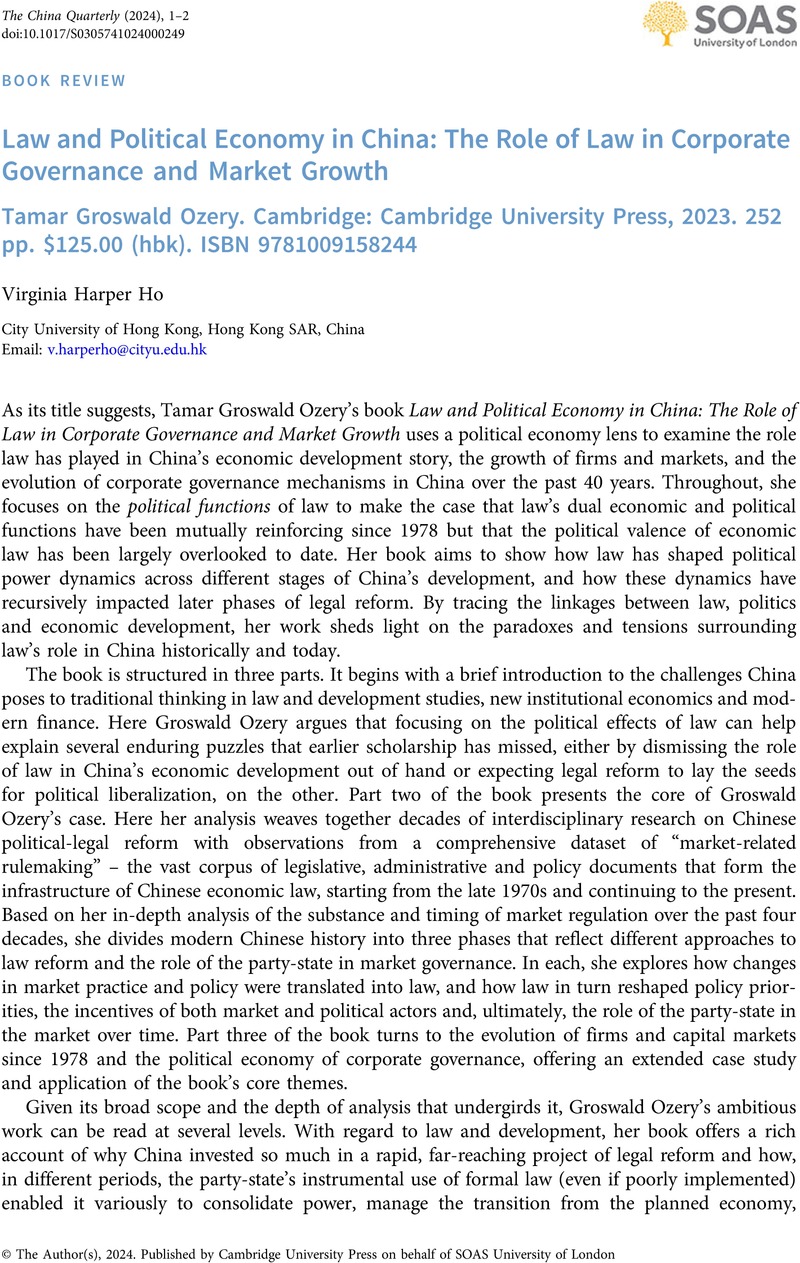No CrossRef data available.
Article contents
Law and Political Economy in China: The Role of Law in Corporate Governance and Market Growth Tamar Groswald Ozery. Cambridge: Cambridge University Press, 2023. 252 pp. $125.00 (hbk). ISBN 9781009158244
Review products
Law and Political Economy in China: The Role of Law in Corporate Governance and Market Growth Tamar Groswald Ozery. Cambridge: Cambridge University Press, 2023. 252 pp. $125.00 (hbk). ISBN 9781009158244
Published online by Cambridge University Press: 12 March 2024
Abstract
An abstract is not available for this content so a preview has been provided. Please use the Get access link above for information on how to access this content.

- Type
- Book Review
- Information
- Copyright
- Copyright © The Author(s), 2024. Published by Cambridge University Press on behalf of SOAS University of London



